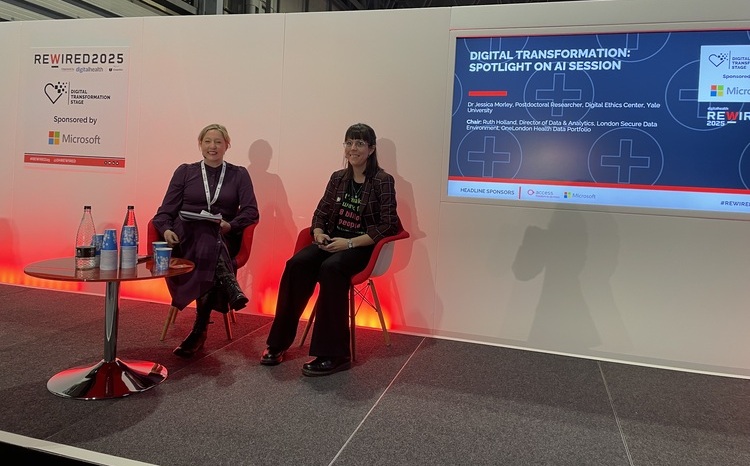HN launches £900,000 co-investment fund for NHS trusts and ICBs
- 26 April 2023

Health Navigator Ltd has launched a £900,000 co-investment fund for NHS trusts and integrated care boards for its AI-based programme, which could improve patient safety and deliver significant savings.
Health Navigator’s (HN) ‘wave 2 innovation’ fund follows on from the first successful trial of its AI-Guided Clinical Coaching (AICC) programme, which ran between 2015 and 2022.
That randomised controlled trial was carried out across eight acute NHS trusts in England, including York Teaching Hospitals NHS Trust and Staffordshire & Stoke-on-Trent ICS. The AI tool was used to identify patients who were at high risk of using urgent and emergency care services in the following months. Once identified, they were offered personalised coaching services over the phone, delivered by registered healthcare professionals.
Mark England, CEO of HN, said: “By arming ICSs with data and prediction technology, we can begin to manage health and care in a more sustainable and impactful way that delivers better patient outcomes whilst saving costs.
“Those living with long-term conditions and advancing frailty will inevitably increase, so as part of this model we need to shift the focus to patient self-management, through proven methods such as health coaching.”
The AICC programme combines data scientific and AI capabilities with digital services. The AICC model has already been proven to help restore and recover ailing urgent and emergency care services, by allowing them to identify patients who are at risk of adverse and preventable events.
At Staffordshire ICS the results of the trial found a 35% reduction in A&E attendance and a 30% reduction per patient in the average total hospital care cost.
Dr Paddy Hannigan, chair of the Stafford and Surround CCG and clinical lead for Staffordshire & Stoke-on-Trent ICS Digital Programme, said: “HN’s offer was transformational for us in Staffordshire and it is applicable to every ICS across the country.
“Data can play a huge role for the NHS if it is collected, analysed and acted upon in the right way. The key to our work with HN was the data-driven case-finding. By using data to better forecast demand and predict outcomes we were able to manage the resources we had accordingly, and of those patients on the intervention, reduce hospital care costs by 30% per patient.”
According to HN, the newly launched fund is worth up to £90,000 per integrated care board (ICB).
Tool looked at patient demographics, inequalities
HN has committed its feasibility study to be included as part of the scheme. The study is a detailed analysis of healthcare consumption patterns, including patient demographics and inequalities data.
The offer is open to the first 10 NHS organisations who express an interest in HN’s tool. The deadline to register for HN’s programme is 31 June 2023 in order to be eligible for the innovation fund.
Predictive AI has been making waves in healthcare in recent years. Just this month Cordio Medical announced its HearO app would be expanding into the UK, which helps congestive heart failure patients to detect potential deterioration through AI technology.





